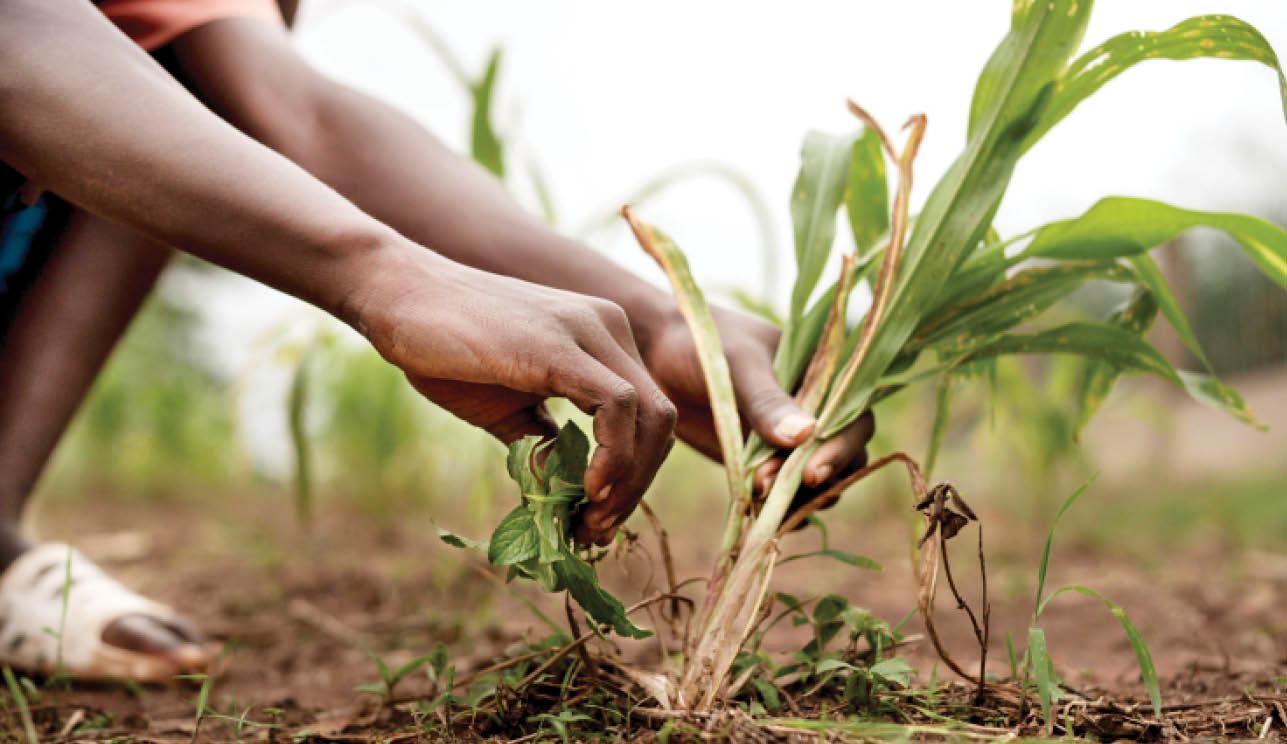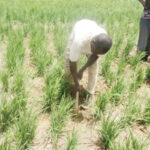Farmers’ hopes were, once again, raised when on Saturday November 25 the Minister of Agriculture and Food Security, Alhaji Abubakar Kyari, flagged off the 2023/2024 dry season farming in Jigawa State. In his address, Kyari maintained that “with the declaration of State of Emergency in Nigeria’s Food Security by President Bola Tinubu on July 13, 2023, there is renewed hope for Nigerians’ access to food and nutrition.” He said the dry-season farming is an integral part of the National Agricultural Growth Scheme and AgroPocket (NAGS-AP) Project, which was made possible by a $134 million loan facility advanced to Nigeria by the African Development Bank (AfDB).
“In this regard, we have set ambitious targets. In wheat alone, we aim to support between 150,000 to 250,000 farmers with 50 percent input subsidy to cultivate between 200,000 to 250,000 hectares and an expected yield of 1,250,000 tonnes of wheat”, Kyari said at the event. While it was good to hear that wheat farmers have been guaranteed off-take of their produce by the Flour Millers Association of Nigeria, it’s also a welcome development that the dry season farming is expected to take place in all the 36 states of the federation and the FCT. In spite of all the huge investments through foreign credit facilities, Nigerians are worried that the flag-off ceremonies of dry-season farming have failed to go beyond annual rituals. We shall soon come back to this point.
There are so many gains from dry-season farming. For instance, it increases food supply and helps to improve the quality of the land used. The process improves moisture status of the soil through the liquifying of soil nutrients and making them available to plants. Also, there are fewer pests and diseases during the dry season. Besides boosting wet-season agricultural production and tackling inflation in prices of food stuff, dry-season agriculture could effectively alleviate poverty and promote economic transformation of the rural population. Indeed, the utility of dry-season farming goes beyond mitigating floods impact in flood-prone areas of the country. Above all, this mode of farming is one guaranteed way of averting agrarian crisis.
Crops that could be cultivated in dry-season in Nigeria include rice, maize, cassava, groundnut, sweet potatoes, tomatoes, onions, watermelon, cucumber, carrots, pepper, garden egg and several other fruits. To accelerate self-sufficiency in food production particularly in a country where population grows exponentially with a below-average GDP growth rate, the potentials of dry-season farming driven by irrigation schemes must be explored. Dry-season in Nigeria is usually between the month of October and March.
Cost of fuel: Dry season farmers in Taraba opt for solar, gas water pumps
Why rain-fed wheat varieties may yield lower than dry season types
Now, some questions on the mind of Nigerians include, does the support for dry-season farming get to the right farmers? How much value did the $5m grant for dry-season farming received from the International Fund for Agricultural Development (IFAD) and other funds from the African Development Bank last year add to Nigeria’s food security? How sure are we that much of the $134m for this year’s dry-season farming would not go to ‘boardroom farmers?’
There seems to be a missing-link in our current approach to dry-season farming. Where, if we may ask, are the river basin authorities? If there was anything Nigeria got right in the agricultural sector during the Second Republic, it was the adequately-funded river basin authorities. The same concerns that informed their establishment nearly five decades ago including the consequences of the Sahel drought of the early 1970s and a decline in agricultural output following the country’s oil boom cannot be more compelling than today’s emergent threats of climate change in addition to devastating floods.
Beginning with the Sokoto River and Chad River basin authorities in 1973, nine more river basin development authorities were created in 1976; bringing the total number of such agencies to eleven. With each operating in a defined geo-morphological boundary, the authorities had the task of improving agricultural production and rural development through organised irrigation schemes among other mandates. For the almost one decade that these river basin authorities functioned, their impact on food production was visibly felt.
With the country’s abundant water resources and naturally-endowed vegetation all of which make dry-season farming friendlier to farmers in Nigeria, government only requires to activate and revitalise the country’s several moribund river basin development authorities to become a key player on the global stage of dry-season agriculture; possibly beyond the heights attained by Libya and Israel. The size of Nigeria’s arable land is put at 38 percent of its total land mass; the largest in Africa.
In addition to the river basin authorities, government needs to galvanize research institutes and centers including the International Institute for Tropical Agriculture (IITA) in Ibadan, the Nigerian Agricultural Extension Research and Liaison Services (NAERLS) in Zaria, and the National Cereals Research Institute (NCRI) at Badeggi in Niger State to increase their outreach activities on dry-season farming in Nigeria’s rural communities. It is important for these agricultural research institutes to transmit the results of their researches on the techniques of dry-season farming to farmers. We also encourage the National Seed Council in Sheda, Abuja, to synergize with relevant agricultural institutes to produce and avail farmers with varieties of rice, maize, sorghum, cassava and other food crops that are weather resilient with shorter maturity period and have better yields.
Using appropriate technology, Libya invested in and celebrated the Great Man-Made River as the world’s largest irrigation project; becoming the eighth wonder of the world. Israel’s drip irrigation technology initiated by Simcha Blass who discovered a tree growing without a trace of water has today changed the world of dry-season farming in tropical Africa. Given the favourable climate and vegetation in the country, Nigeria can go far to strategically change the state of its dry-season farming; all things being done rightly by the right people and at the right time.
Nonetheless, we urge the CBN to ease farmers’ access to credit facilities with an interest rate not beyond one digit. We call on the Bank of Agriculture to support increased participation and investment of farmers in dry-season agriculture. States and local governments are equally urged to collaborate with development partners to initiate and support irrigation schemes; a strategy that can take many unemployed youths off the streets. With the rains having ceased already, it is hoped that farmers would be availed with the promised improved seeds and farm inputs at 50 percent cost without having to wait for too long. May Allah guide us, as government and as individuals, to ensure self-sufficiency in food production; making Nigeria major food exporter, not importer, amin.

 Join Daily Trust WhatsApp Community For Quick Access To News and Happenings Around You.
Join Daily Trust WhatsApp Community For Quick Access To News and Happenings Around You.

